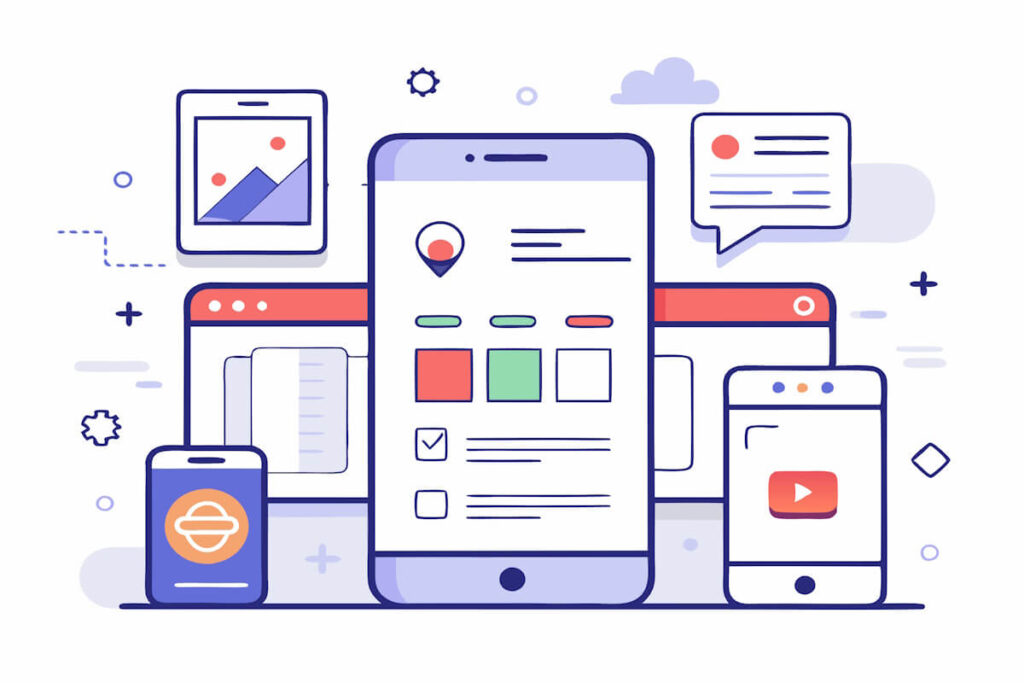The logistics industry has undergone a significant transformation in recent years, with a notable shift towards digitalization. Mobile app development has played a pivotal role in enhancing operational efficiency and improving the overall customer experience. As technology continues to advance, new trends are emerging that are poised to revolutionize the logistics sector. Let’s delve into some of the key trends in mobile app development that are shaping the future of logistics.
1. Internet of Things (IoT) Integration
The integration of Internet of Things (IoT) technology is a game-changer for the logistics industry. IoT devices like sensors and beacons are now being utilized to track shipments in real-time, providing precise location data and enabling more efficient route planning. Mobile apps equipped with IoT capabilities empower logistics companies to streamline their operations, enhance supply chain visibility, and deliver superior customer service. Some benefits of IoT integration in logistics include:
- Real-time tracking of shipments
- Enhanced route optimization
- Improved operational efficiency
2. Artificial Intelligence (AI) and Machine Learning
AI and machine learning technologies are increasingly shaping the future of logistics. Mobile apps powered by AI can analyze extensive data sets to optimize delivery routes, forecast demand, and automate tasks like inventory management and order fulfillment. By harnessing the power of AI and machine learning, logistics companies can enhance decision-making processes, drive down costs, and boost overall operational efficiency. Key advantages of AI and machine learning in logistics include:
- Predictive analytics for demand forecasting
- Automation of repetitive tasks
- Enhanced decision-making capabilities
3. Augmented Reality (AR) and Virtual Reality (VR)
AR and VR technologies are revolutionizing the way logistics companies train their employees and engage with customers. Mobile apps that integrate AR and VR features offer immersive training experiences, allowing employees to simulate real-life scenarios in a virtual setting. Furthermore, AR and VR enhance the customer experience by enabling them to visualize products in their own environment before making a purchase. Benefits of AR and VR in logistics include:
- Enhanced training experiences
- Improved customer engagement
- Visualization of products in real-world scenarios
4. Blockchain Technology
Blockchain technology is set to transform the logistics industry by creating secure and transparent supply chains. By leveraging blockchain, logistics companies can achieve end-to-end traceability of goods, mitigating the risks of fraud and tampering. Mobile apps that integrate blockchain technology offer real-time visibility into the movement of goods, ensuring trust and accountability throughout the supply chain. Advantages of blockchain technology in logistics include:
- Secure and transparent supply chains
- Reduced risk of fraud and tampering
- Real-time visibility into goods movement
5. Mobile Fleet Management
The adoption of mobile fleet management apps is on the rise in the logistics sector, enabling companies to monitor and oversee their vehicles and drivers in real-time. These apps provide valuable insights into driver behavior, vehicle performance, and fuel efficiency, allowing logistics companies to optimize their fleet operations and cut costs. With the proliferation of mobile fleet management solutions, logistics firms can enhance safety, compliance, and overall fleet performance. Benefits of mobile fleet management in logistics include:
- Real-time tracking of vehicles
- Improved driver behavior monitoring
- Optimization of fleet operations
In conclusion, the future of logistics is being shaped by advancements in mobile app development that leverage technologies such as IoT, AI, AR, VR, blockchain, and mobile fleet management. By embracing these trends and integrating them into their operations, logistics companies can gain a competitive edge, enhance efficiency, and provide superior service to their customers. With technology continuously evolving, the potential for innovation in logistics is limitless, and mobile app development will be at the forefront of driving this transformation.
Looking to harness the latest trends in mobile app development for your logistics operations? Contact us today to explore innovative solutions tailored to your needs.
FAQs:
1. What is one significant trend in mobile app development for logistics?
One significant trend in mobile app development for logistics is the integration of Internet of Things (IoT) technology.
2. How can AI and machine learning impact the logistics industry?
AI and machine learning technologies can optimize delivery routes, predict demand, automate processes, reduce costs, and enhance overall efficiency in the logistics industry.
3. How are AR and VR technologies revolutionizing logistics companies?
AR and VR technologies are revolutionizing logistics companies by providing immersive training experiences for employees and enhancing the customer experience through visualization of products before purchase.
4. How can blockchain technology transform the logistics industry?
Blockchain technology can create secure and transparent supply chains, enable end-to-end traceability of goods, reduce the risk of fraud or tampering, and provide real-time visibility into the movement of goods in the logistics industry.
